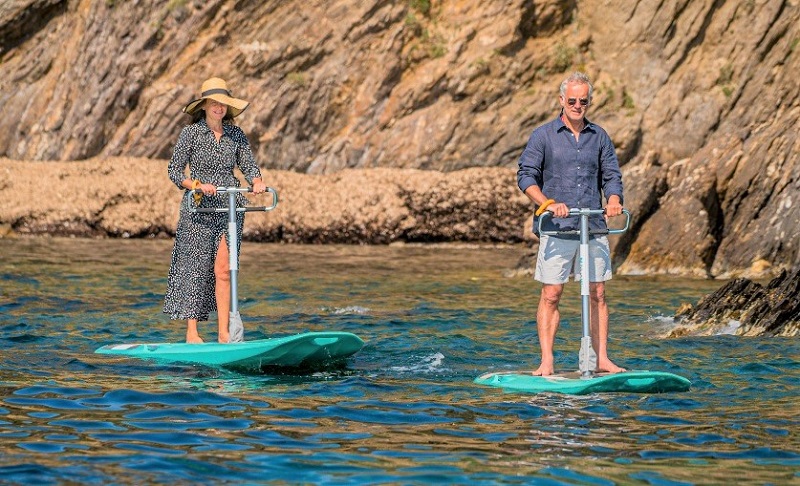SINGAPORE, July 10 — When Singapore-based Swiss expat Raphael Dana visited West Africa on a business trip in late 2017, he noticed that there were many motorcycle-taxis, and was inspired to take South-east Asia’s ride-hailing model over there.
Dana, 45, told TODAY in an interview yesterday: “There were mototaxis (a local term there for motorcycle-taxis) everywhere and they are already there, but nobody saw this as a business. We thought we could use the Grab and Gojek (model).”
He was visiting the small West African nations of Togo and Benin — where French is the official language. As a fluent French speaker, his interest in a business venture there was only strengthened.
Dana, who now divides his time between Singapore and Africa, went on to co-found Gozem.
Just eight months after the service was made available in the two countries, there are already more than 100,000 accounts created and 140,000 downloads of the mobile application on the Google Playstore. He said that Gozem has attracted 600 drivers.
Gozem now has its sights set on other parts of the continent such as Cameroon and Gabon.
When asked about the model, Dana said: “Africa looks like Vietnam 10 years ago, which was why I wanted to learn the South-east Asian model and take it over to Africa.”
He has been based in Singapore for the past seven years, and has started a consulting company here.

Safety, helmets a must for start-up
He wanted Gozem, which has an office in Singapore, to act as a safer and more reliable mode of transport for passengers in the African nations.
“(Previously) people would have to walk to the main street to hail a cab and negotiate for a deal. This is not an efficient model and people would not know how safe the ride is, because they would not know how safe their driver is.”
Drivers wanting to sign up for Gozem have to submit their personal details along with relevant documents such as driving licences, before a team visits their homes as a security check.
He said that women and parents of child passengers previously did not have a choice when hailing a ride, despite their safety worries.
On top of providing smartphones, helmets and insurance to all the 600 drivers already registered with the company, Gozem also implemented two mandatory training sessions.
One provides information on the job scope and the other covers technology, security and finance — everything from phone usage to road safety.
However, safety remains his top concern. Dana said: “Most of the people go on the back of a motorcycle without a helmet and it is a big problem. Every day, people die because of mototaxi accidents.”
He told TODAY that the team plans to unveil payment, food and medicine delivery services as soon as the start of next year.
“Gozem is going to be very life-changing for people,” he said. “This new access to digital services can solve many of the problems people are facing now. For one thing, the pharmacy delivery can deliver drugs and medicine to villagers in more rural areas.” — TODAY






















